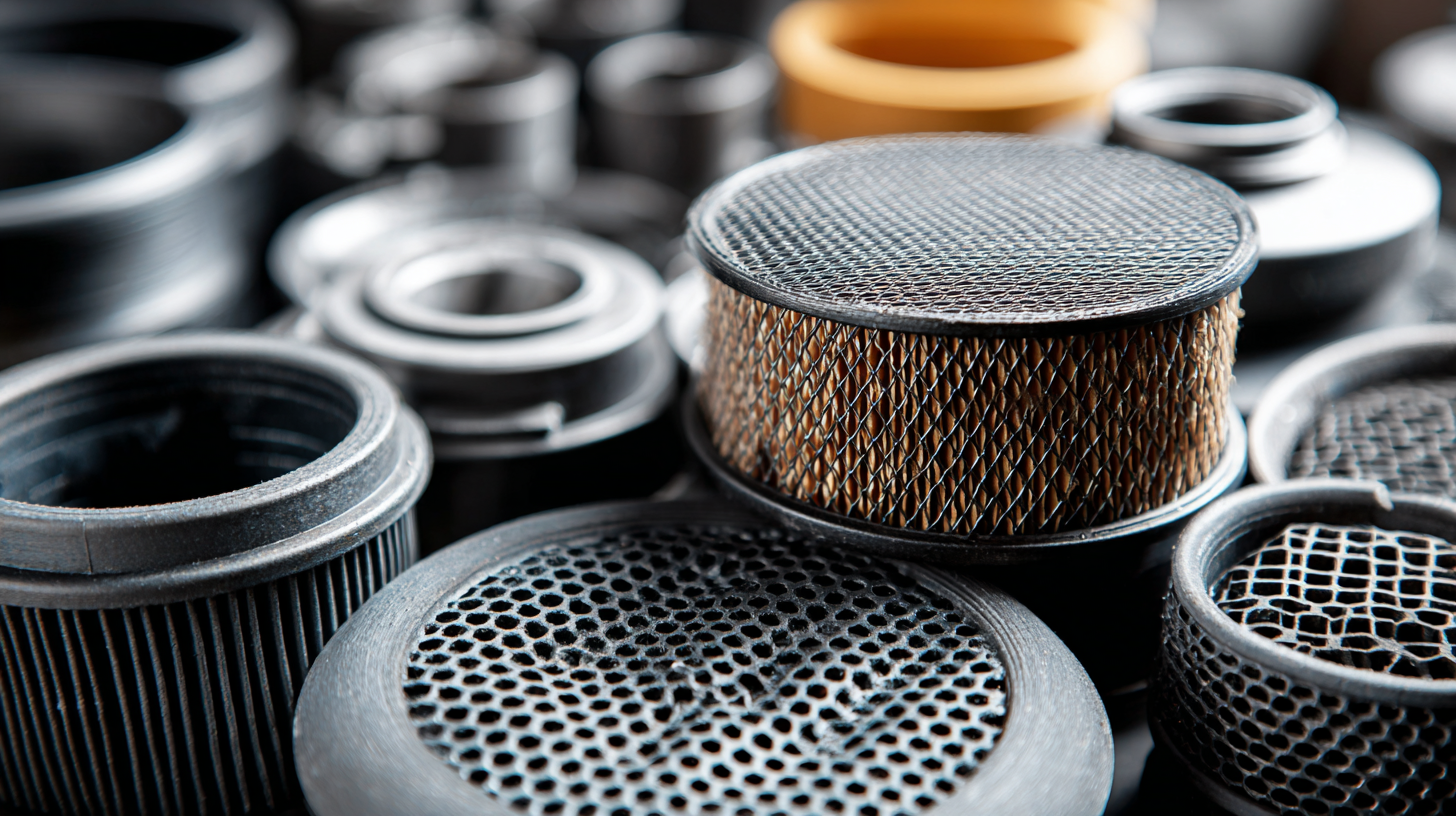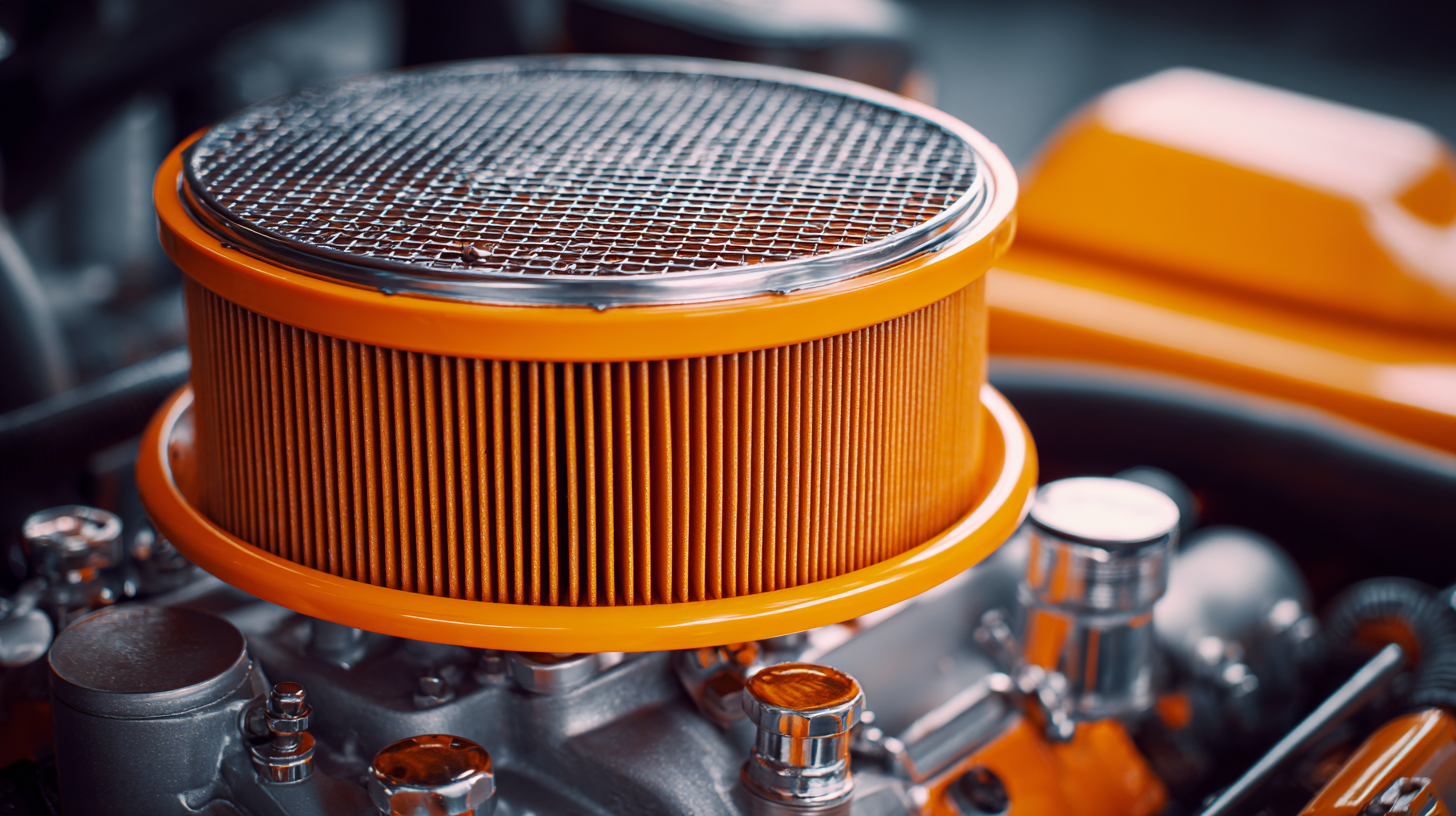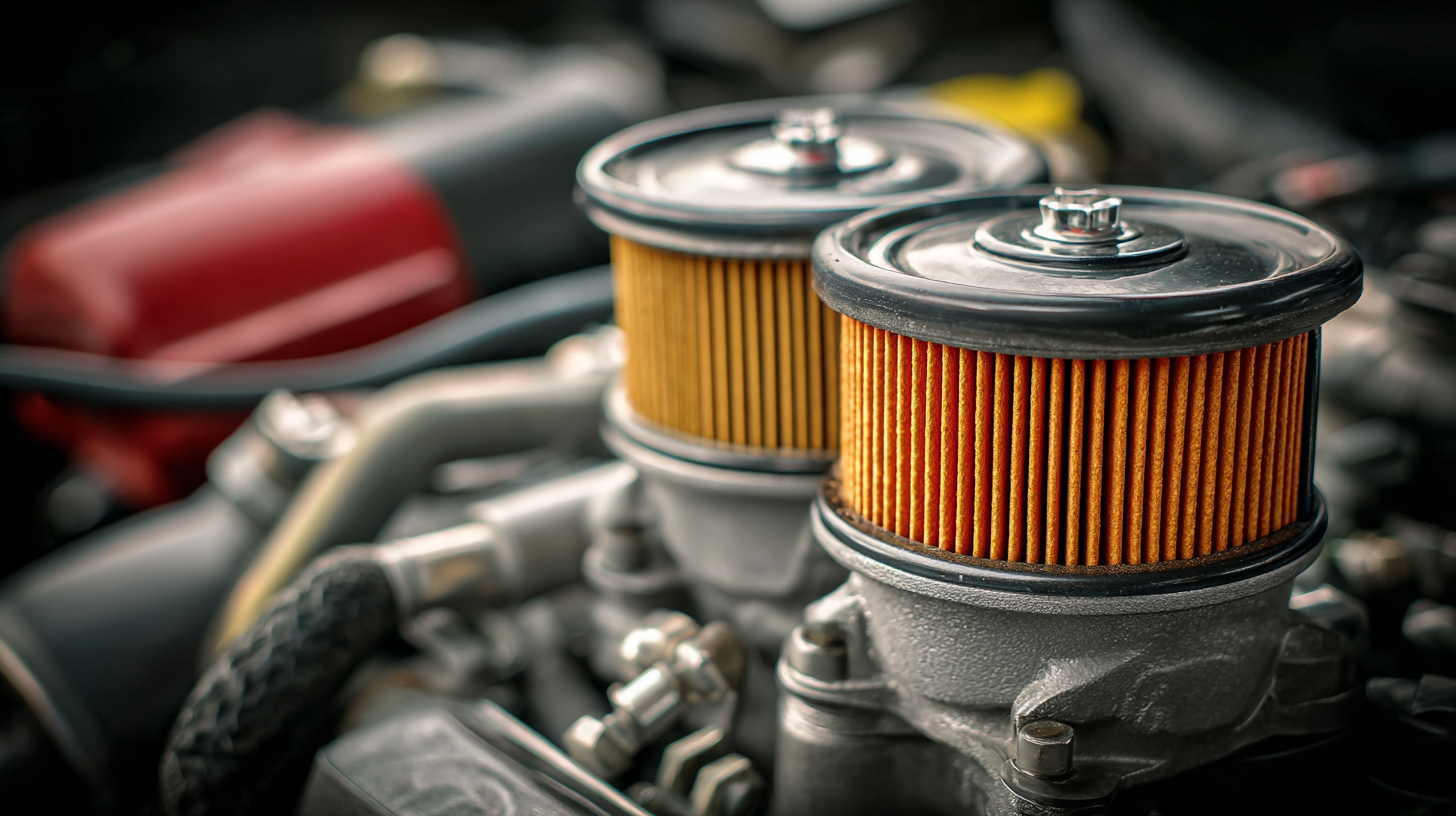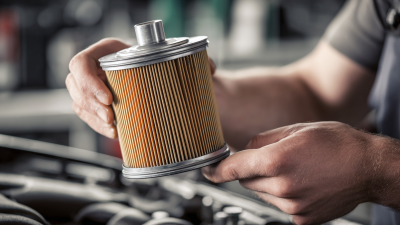Choosing the right auto spare parts air filter is crucial for ensuring optimal engine performance and longevity. According to the Automotive Aftermarket Suppliers Association (AASA), the replacement market for automotive filters, including air filters, is expected to reach $25 billion by 2025, highlighting the increasing demand for high-quality components. A well-maintained air filter not only contributes to improved fuel efficiency but also enhances the overall performance of the vehicle, factoring into the decision-making process for many vehicle owners.

With the average vehicle now on the road for more than 11.5 years, regular replacement of auto spare parts air filters has become essential to comply with manufacturer maintenance schedules and to adhere to emissions standards. This guide aims to provide essential tips on selecting the most suitable air filter for your vehicle, ensuring that you make informed decisions that meet both performance and budgetary needs.
 Air filters play a crucial role in maintaining vehicle performance, as they directly affect the engine's efficiency and longevity. According to a report by the International Journal of Automotive Technology, a clean air filter can improve engine efficiency by up to 10%. This is because a properly functioning air filter ensures that the engine receives ample clean air for combustion, preventing contaminants from entering and causing wear over time. As contaminants build up in the filter, airflow is restricted, leading to reduced performance and decreased fuel efficiency.
Air filters play a crucial role in maintaining vehicle performance, as they directly affect the engine's efficiency and longevity. According to a report by the International Journal of Automotive Technology, a clean air filter can improve engine efficiency by up to 10%. This is because a properly functioning air filter ensures that the engine receives ample clean air for combustion, preventing contaminants from entering and causing wear over time. As contaminants build up in the filter, airflow is restricted, leading to reduced performance and decreased fuel efficiency.
Moreover, research indicates that a clogged air filter can lead to a significant decrease in horsepower; studies show a drop of about 5 to 10 horsepower in vehicles with obstructed filters. This is particularly concerning for motorists who rely on their vehicles for both daily commutes and long-distance travel. Regularly checking and replacing air filters can be a simple yet effective way to enhance vehicle performance and protect the engine, ultimately leading to better fuel economy and lower emissions. In a market where every percentage of performance matters, prioritizing the quality of air filters is essential for any car owner.
When selecting an auto spare parts air filter, several key factors must be considered to ensure optimal performance and longevity of your vehicle's engine. Air filters play a crucial role in preventing dirt, dust, and other debris from entering the engine, which can significantly affect its performance. Research indicates that the filtration efficiency can vary widely, with some filters achieving minimum average efficiencies around 56.1% for particle retention. This highlights the importance of choosing a high-quality air filter that guarantees better filtration performance.
Furthermore, the market for automotive air filters is projected to witness significant growth, with values expected to rise from USD 5.70 billion in 2023 to USD 9.24 billion by 2029 in North America alone. This trend underscores the increasing recognition of air filter importance among vehicle owners. As vehicle maintenance becomes a priority, especially in areas prone to smoke and wildfires, the need for effective air filters has never been more pressing. Prioritizing features like material quality, fit, and filtration efficiency during the selection process can ensure your engine remains protected and performs at its best.
When selecting the right air filter for your vehicle, understanding the common types and their benefits is crucial. The most prevalent types of air filters include paper filters, foam filters, and cotton filters. Paper filters are typically cost-effective and provide adequate filtration for most standard vehicles, ensuring optimal airflow and protection against dirt and debris. According to a report by the Automotive Aftermarket Suppliers Association, nearly 55% of vehicle owners opt for paper air filters due to their accessibility and replacement frequency, which averages around 12,000 to 15,000 miles.
Foam filters, on the other hand, are reusable and can be washed, making them a sustainable option for those who prioritize longevity. They are known for excellent filtration efficiency and can handle larger debris but may allow finer particles to pass through. In contrast, high-performance cotton filters, often used in sports and off-road vehicles, provide superior airflow and filtration. These may increase horsepower by up to 10%, as noted by a study from the Society of Automotive Engineers, but require more rigorous maintenance to keep them functioning effectively. By understanding these options, vehicle owners can better choose an air filter that suits their performance needs and driving conditions.
When selecting an air filter for your vehicle, it's crucial to balance quality and cost, especially when operating within a budget.
Start by researching brands known for their reliability and performance; reputable manufacturers often provide certifications that verify their products meet necessary standards.
Look for filters that utilize high-quality materials like synthetic fibers, which can enhance filtration efficiency and longevity.
In addition to brand reputation, consider the filter's specifications. Pay attention to the micron rating, which indicates the size of particles the filter can capture.
A lower micron rating typically means better filtration, but it may also come at a higher price. Therefore, assess your driving conditions; if you are often on unpaved roads or in dusty areas, investing in a higher-quality filter could save you from future engine problems.
Compare prices from various suppliers, but be cautious of deals that seem too good to be true—sometimes, lower prices can mean compromised quality.
Prioritize finding a reliable filter that stays within your budget while ensuring optimal engine performance.
 When selecting the right air filter for your vehicle, ensuring proper fitment and compatibility is crucial. First, always refer to your car's owner manual, which typically lists the specific part numbers and dimensions you need. Accuracy in measurements is key; even a slight discrepancy can affect engine performance. Additionally, consider the make, model, and year of your vehicle, as these factors often dictate the exact specifications of the air filter required.
When selecting the right air filter for your vehicle, ensuring proper fitment and compatibility is crucial. First, always refer to your car's owner manual, which typically lists the specific part numbers and dimensions you need. Accuracy in measurements is key; even a slight discrepancy can affect engine performance. Additionally, consider the make, model, and year of your vehicle, as these factors often dictate the exact specifications of the air filter required.
Another important aspect is to choose filters that meet or exceed the manufacturer’s standards. Look for filters that are designed for your specific vehicle model, as they will provide the best airflow and filtration efficiency. You can also consult with automotive professionals or reputable parts dealers for recommendations. Online databases and resources can also guide you in finding compatible options. Ultimately, investing time in research will result in a better-performing vehicle and longer engine life.






